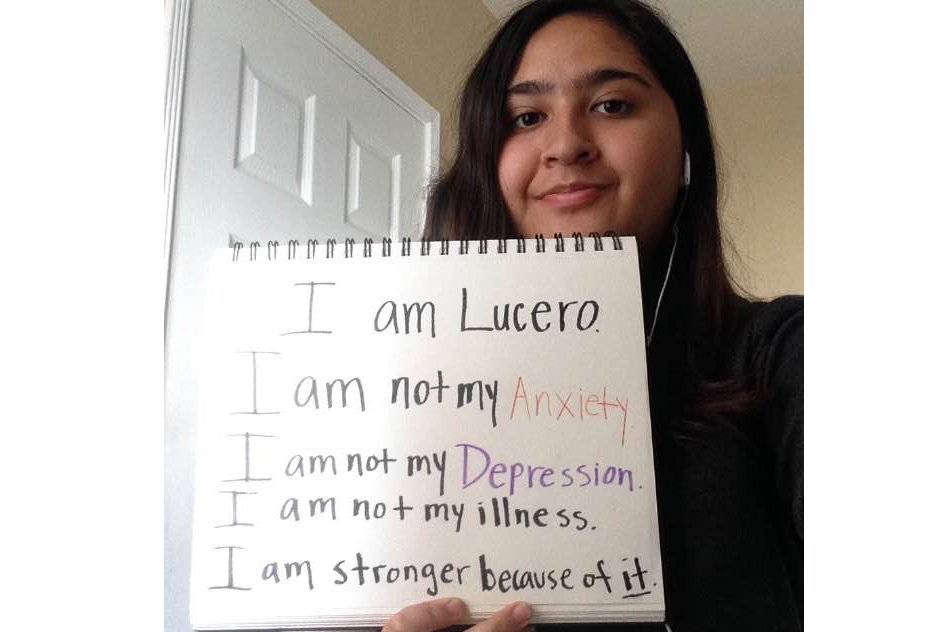Image Source:footstepsformentalhealth
“Change the way you see things and the things you see will change” – Dr Wayne Dyer
What is often more harmful than a lack of information is inaccurate information. Myths are widely held beliefs that are largely false and there are many myths about mental health. It is impossible to cover all of them in an article. We will try to bust some of the most common ones.
■ Mental means crazy
We have heard this inaccurate word association time and time again. Mental does not mean crazy. The word mental refers to things related to the mind. In the context of mental health, crazy is often used to label a person “mad” for experiencing mental health issues.
■ Is it okay to call someone “crazy” because their actions do not fit our ideas of what being “normal” is all about?
Let’s not be judgemental and give others a negative label based on our preconceived ideas of mental health. How would we feel if someone gave us a negative label without understanding us as a person, the reasons and context behind our actions?
Deepika Padukone and Shahrukh Khan are amongst many that have experienced mental health issues. Does this mean they are crazy? No. Then why are others labelled “crazy”?
A person’s mental health issues do not define them as a person. They are not their mental health issue. They are not a “Schizophrenic” or a “Depressed Person”, they are experiencing depression or schizophrenia. There is a difference between “being something” and “experiencing something”, with the latter being the case in mental health issues. Let’s not label people as this worsens their issues and the stigma prevents people from seeking appropriate support.
■ Mental health is the same as mental health issues
Your mental health is not the same as mental health issues. Like aforementioned, we all have a mental health just like we have a physical health. A mental health issue means a person is experiencing a difficulty with their mental health.
■ People with mental health issues belong in a mental hospital
No. Any one of us can experience a mental health issue and this does not mean we belong in a mental hospital. We all deserve to be living in the community, amongst our social network of people and have the right to be treated like a human being. People experiencing mental health issues should only be hospitalised as a last resort, after all other options to provide support in the community have been exhausted. Often, people experiencing more severe forms of mental health issues and those at risk of hurting themselves and/ others are hospitalised. In theory, people hospitalised for treatment should be supported to return to the community on remission but unfortunately, this does not happen in practice. This can be due to a number of reasons such as, ineffective or inappropriate treatment, lack of resources and support in the community and unethical reasons which are beyond the scope of this article.
■ People with mental health issues are weak in character
Does having a physical health issue make us weak in character? You would not question the character of a patient with cancer or asthma, so why would having a mental health issue make us weak in character? Anyone experiencing a mental health issue is not weak. There is nothing inherently wrong with them. Neither are they at their fault for experiencing a mental health issue. Everyone has experienced difficulties in life. Mental health issues can develop when we struggle to manage the impact of these difficulties using our existing coping strategies.
It takes a lot of strength to acknowledge you have a mental health issue and even more to seek support to understand and manage it.
■ You can only treat mental health issues using medication
This myth is encouraged by our medicalised view of mental health issues and wanting a “quick fix”. Medication is one amongst many treatment options and is not a compulsory treatment for all mental health issues. Therapy, also known as talking therapy can be an effective treatment option. This involves talking to a suitable professional (e.g. clinical psychologist, counselling psychologist, therapist) trained to help people understand and manage the impact of mental health issues.
■ You can “catch” mental health issues from others
A mental health issue is not a virus or a disease. It is not “catchable”. The majority of us would have a mental health issue if we were able to “catch” them from people experiencing mental health issues.
Only people with mental health issues have talking therapy
This is inaccurate. People without mental health issues can also have talking therapy. The purpose of therapy is talk to an appropriate professional (e.g. clinical psychologist, counselling psychologist, therapist) to understand yourself, the problems you might be experiencing and how to manage them. Therapy should be confidential. Everything you share with the professional should remain between you and the professional, unless there is a serious risk to yourself or others.
As therapy can improve our understanding of ourselves and others, everyone can benefit from it whether or not they are experiencing a mental health issue. I will be discussing talking therapy in greater detail in the near future.
■ Life goes downhill when you have a mental health issue
We cannot stress how inaccurate this myth is. Given the right support and motivation, anyone experiencing a mental health issue can succeed and enjoy life. It is all about understanding and managing your mental health and utilising appropriate professional (e.g. psychiatrist, psychologist) and personal (e.g. friends, family, society) support in doing so. In fact, some people who have experienced mental health issues have said that this experience has made them stronger and wiser as a person.
■ You can tell if someone has a mental health by how they look
There was a belief around 500 years ago that you could spot a “thief” by looking at the distance between their eyes. Apparently, eyes that are “too close together” was enough to “prove someone was a thief”. Imagine how many innocent people would have been labelled a “thief” and wrongly punished if this ridiculous myth was believed to be accurate. Similarly, we cannot tell if someone is experiencing a mental health issue by how they look as unlike physical health issues, mental health issues are not “physically” visible.
Mental health issues do not appear as a physical wound because the wound is an emotional and psychological one. Sometimes we wish this was true as we could get the appropriate support to people experiencing mental health issues sooner than later.
■ Only females experience mental health issues
This is not true. Both males and females can experience mental health issues. Research suggests women are more likely to seek support for their mental health issues than men (Paul, Cheater & Marshall, 2005).
We are not to blame for having these myths as we learn about the world and concepts based on our social interaction with others and overtime the lack of resources, awareness and understanding have contributed to these myths. But we will be at fault if we continue to believe in these myths. This will increase the stigma attached to mental health, limit our understanding of mental health and mental health issues and discourage people from seeking support.
We would love to hear your feedback and views.
Are there any other myths that need busting?
How can we stop these myths from being passed on?
How can we reduce the stigma attached to mental health?
References:
Galdas, P. M., Cheater, F., & Marshall, P. (2005). Men and health help-seeking behaviour: literature review. Journal of Advanced Nursing, 49 (6), 616-623.










